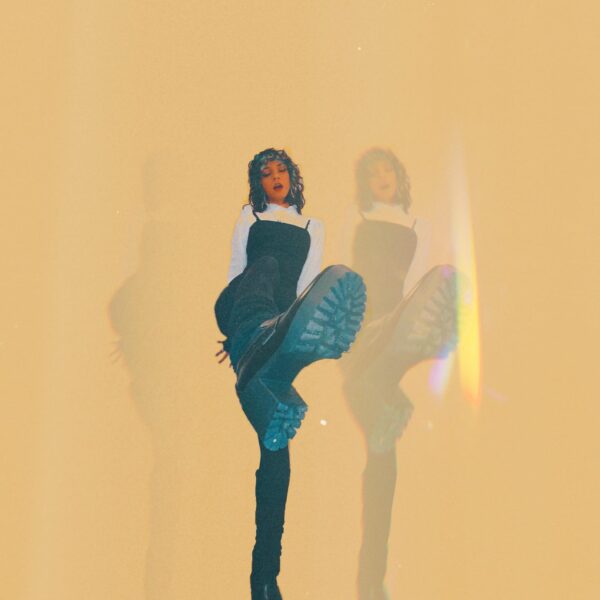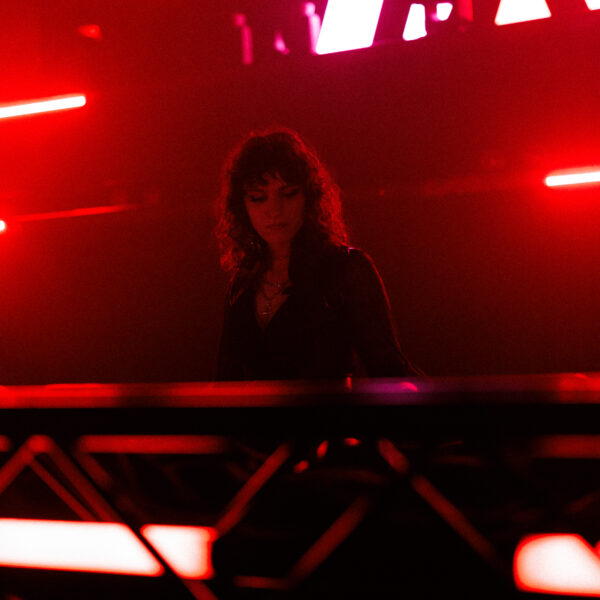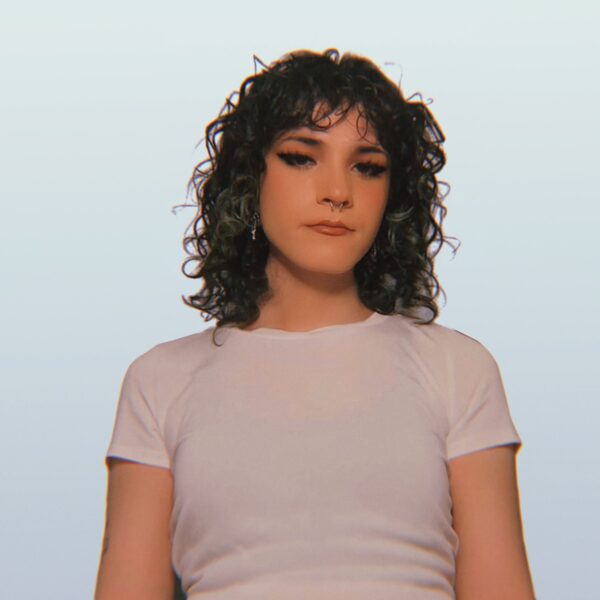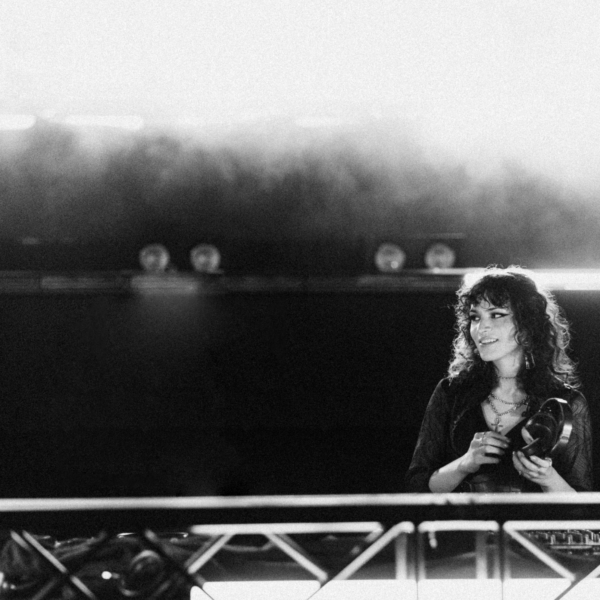In our exclusive interview with rising Norwegian House music star Meera, we talk origins, influences and the impact of her breakout single.
Meera’s name is on everybody’s lips at the moment. Every club concept and DJ in Norway has been trying to lure the DJ and producer to their nights. DJ booths from Ibiza to Oslo have welcomed Meera alongside older peers like Black Coffee and Simon Field. Her star has been consistently rising and her DJ talents have been a serious demand following the trajectory of her break out single “Music for Humans.”
With some early support from the likes of Black Coffee again, Damian Lazarus and John Digweed – to name only a few – Meera started to shake the world’s dance floors through some of the world’s most influential selectors over the last year. She’s followed the success of that record with two equally strong releases in the form of “Telefon” and “Clean the Turbines,” solidifying a sound for the young artist early on.
Between rhythmical foundations that err towards non-western traditions and euphoric melodic expressions that touch hedonistic heights, Meera has cultivated a unique sound forged on the foundations of House music. She’s emerged as a solitary figure with her productions hard to define and as it extends to her DJ sets, equally divergent from anything going on around her.
After making her debut in Oslo and at Jaeger last month for Simon Field’s basement event, Meera returns to Jaeger’s booth this Saturday for Olle Abstract’s LYD. As much as we’ve followed her progress ver the last year, we know very little of the emerging artist and with her visit looming we caught up with her via telephone for an exclusive chat with Meera.
Where are you at the moment?
I’m at home in Stavanger.
I read your biography and it mentioned that you grew up with your dad blaring music everywhere. What kind of music was he playing?
It was a lot of Hard-House, classic House and a lot of Hip Hop too.
Does he come from a DJ background too?
He’s been DJing since the eighties.
And that was your musical education?
It was my introduction to DJing.
How long have you been Djing?
I’ve been DJing since I was fourteen, so 12 years ago.
Has there ever been any sonic influence from your dad, because I remember when I was 14, my taste couldn’t have been further from my father’s?
I mostly play my own music.
So you didn’t start by playing the records that were just around at home?
I started playing digitally with Serato and stuff on the laptop. I didn’t start playing vinyl until two years ago?
Are you finding some classic gems in your Dad’s record collection today?
I do sometimes, but there is just so much music.
Was it always electronic music for you?
When I was young I was mostly into emo and rock, so a lot of My Chemical Romance and Linkin park, that kind of stuff.
How did you arrive electronic music from there?
I think I discovered Daft Punk and it snowballed.
Which Daft Punk era was this?
It must have been when the “Around the World” video was on MTV.
At that point, did you change your whole attitude towards music and it became only about electronic dance music?
I was pretty into it, but I was incorporating French House with Rock and Hip Hop; everything I liked. I have always been appreciative of all kinds of music.
I know Stavanger has had some really good DJs that has come out of it, but was there anything like a scene there that could cultivate your interests early on?
There was a small community of DJs starting up. We had this open-deck night at a bar that I used to go to, it was a cocktail bar. I would go there with some friends and it was pretty open to everyone.
How did it develop from there. Did you go into production from there?
O no, I started producing when I was 10 years old. I was already making music.
You were making music before you even started DJing. So was the point to get that music out there so people could listen to it?
Not really. I just thought both things were fun, and I did them independently.
One doesn’t really effect the other?
When I was DJing at 14, I was mainly playing EDM and that kind of stuff and he music I was making, was more like Filter House, Garage and Drum n Bass. It was very different.
What was the route to the first release, “Music for Humans” because you must have been making a lot of music up to that point?
I did self-release an album and three EPs, but mostly it’s been only for me. I have this Soundcloud profile of really old tracks. It’s not something I advertise, it’s just out there.
Is it similar to the more recent stuff?
Not at all.
Considering how big Music for Humans became after its release, is it something that you anticipated when you were making the track?
I don’t really remember making it. I just sent it to the people VOD (Vinyl on Demand) and they really liked it.
Did you expect it to be so well received, not only by the public, but by your peers; people like Black Coffee and Damian Lazarus?
No. I just thought it was cool that VOD was interested and then it just kind of blew up in a way. It’s been pretty surreal seeing huge DJ support and playing the track and the EP.
That also led to playing to places like Ibiza. Are you still playing in that cocktail bar in Stavanger?
Yes, I still do once or twice a month.
There must be a huge difference going from something like that to a Black Coffee night in Ibiza.
It’s pretty jarring.
Do you feel you have to adapt to that kind of crowd?
Not really. When I DJ, I play what I want to hear so it doesn’t change a lot.
After “Music for Humans,” came “Telefon” and “Clean your turbines” and there is a distinctive sound that emerges between those three releases. Was there a conscious idea to establish a sound for yourself or was it just because they were made around the same time?
The time difference between those tracks is pretty huge. I think it was just the direction the tracks ended up going in. I didn’t consciously try to make them sound like each other.
Well it’s very unique since you have these Latin- and African rhythmical motives under pinning these melodic, ethereal on euphoric synths. How did you come upon fusing these elements in your music?
It’s just a result of me drawing from the all the music I like.
How did the African and Latin elements specifically arrive into your palette?
Keinemusik and pablo fierro kinda drove my interested in seeking out more non-western music. That’s when I really got into that sound, and since then I’ve been listening to a lot of African Rock and Disco from the 70’s and 80’s. I discovered artists such as itadi, polibio mayorga, la solucion, and mulato astatke who have all had some kind of impact on my sound.
After these three releases do you have anything coming up, that you’re excited to talk about yet?
I have my collaboration with Danish trio Tripolism coming on Friday, that will be on Ultra. And then I have an Ep coming on Crosstown rebels in late February. Then I also have one coming in black book records in April or March.
Are they all kind of similar to the sound you’ve already cultivated through the first three releases?
The next EP is going to be kind of similar and the other two are going to be a bit different.
Thank you for talking to us Meera. We’ll see you in the Dj booth next.
I’m really looking forward to playing at Jaeger again.





